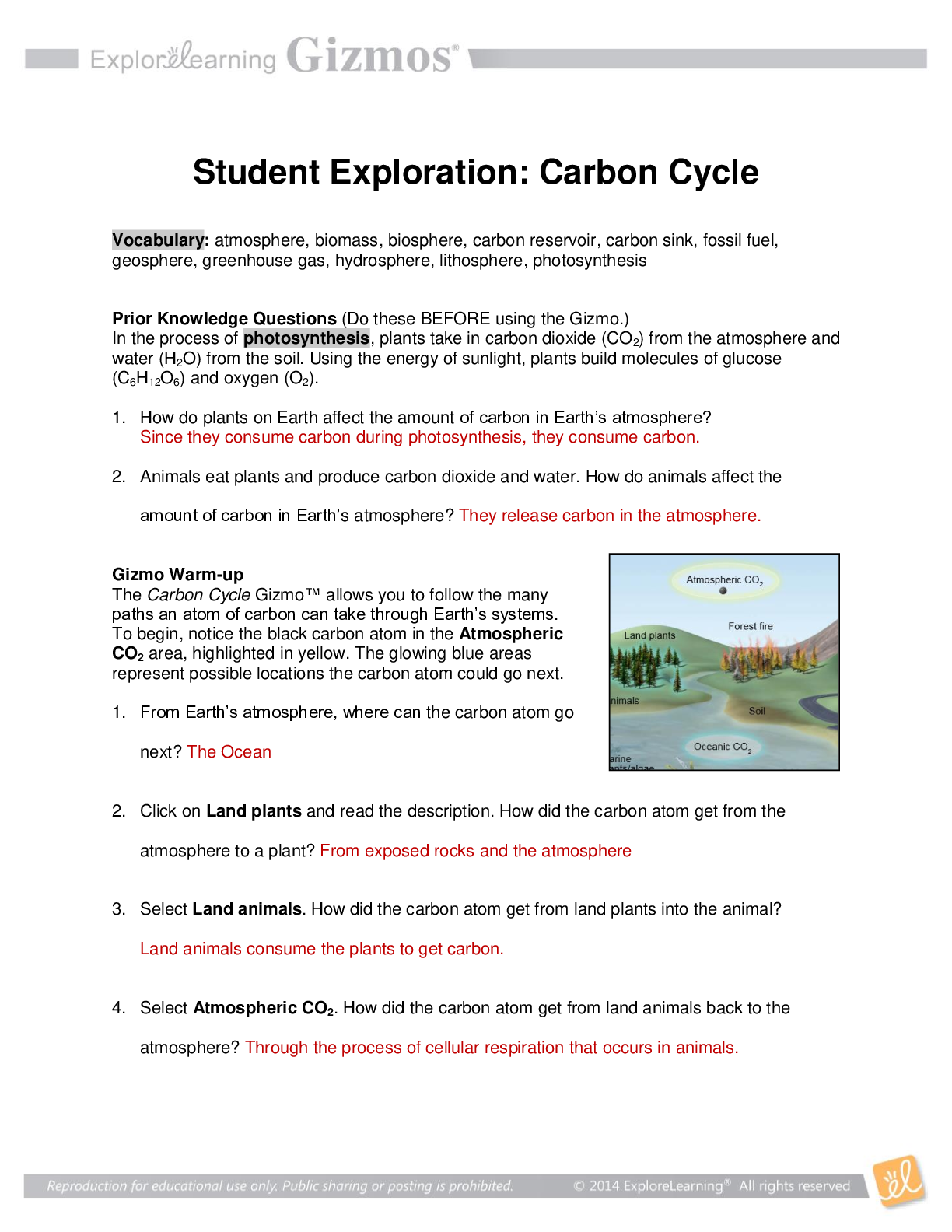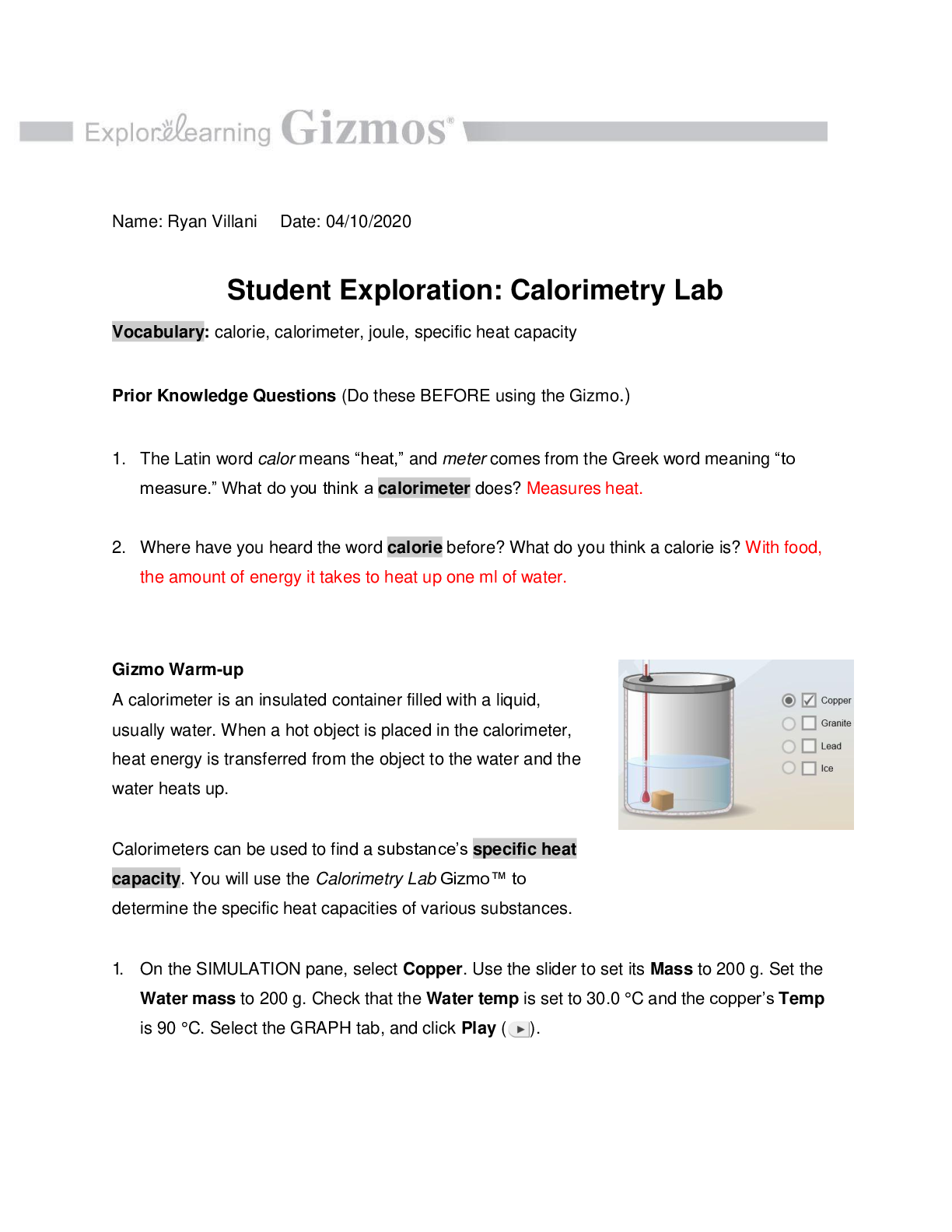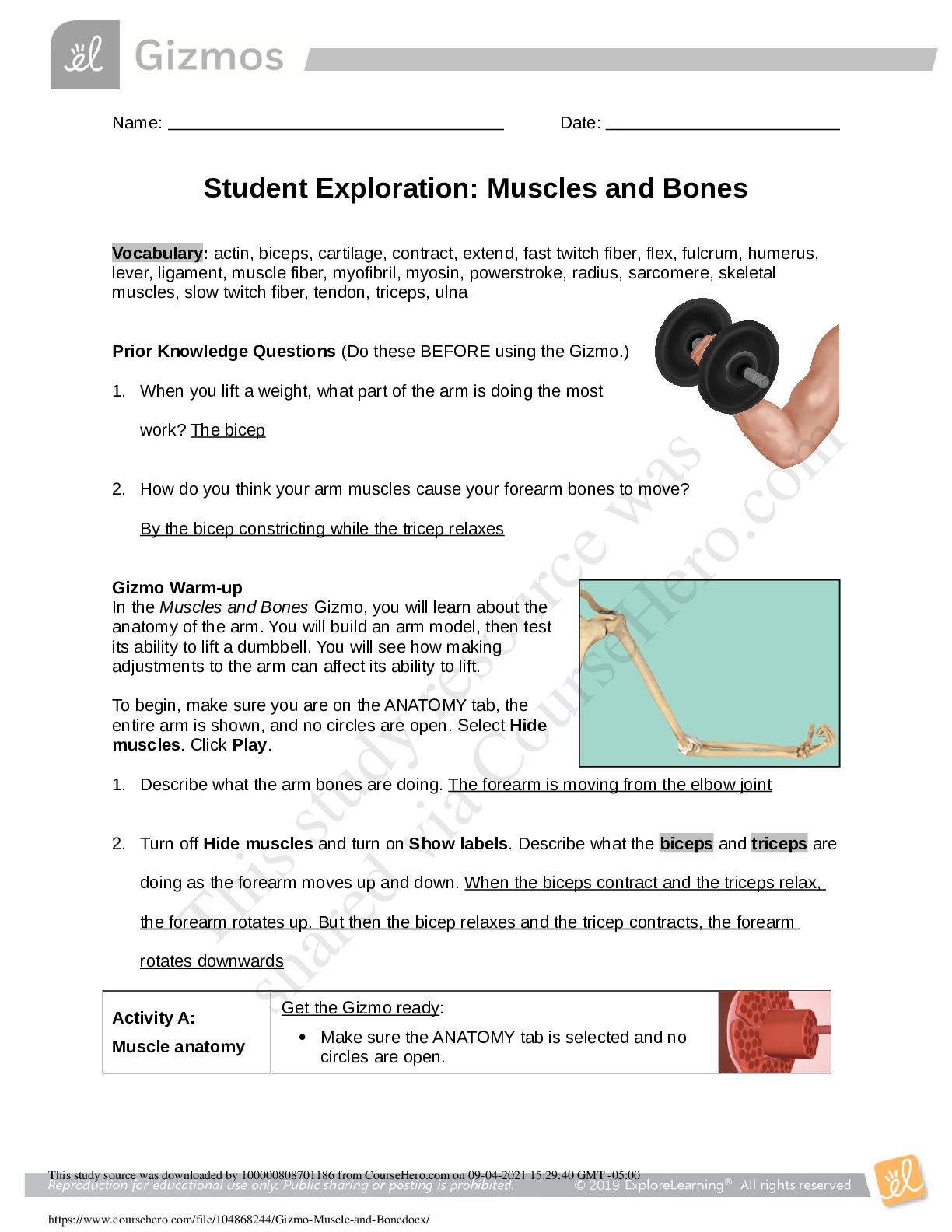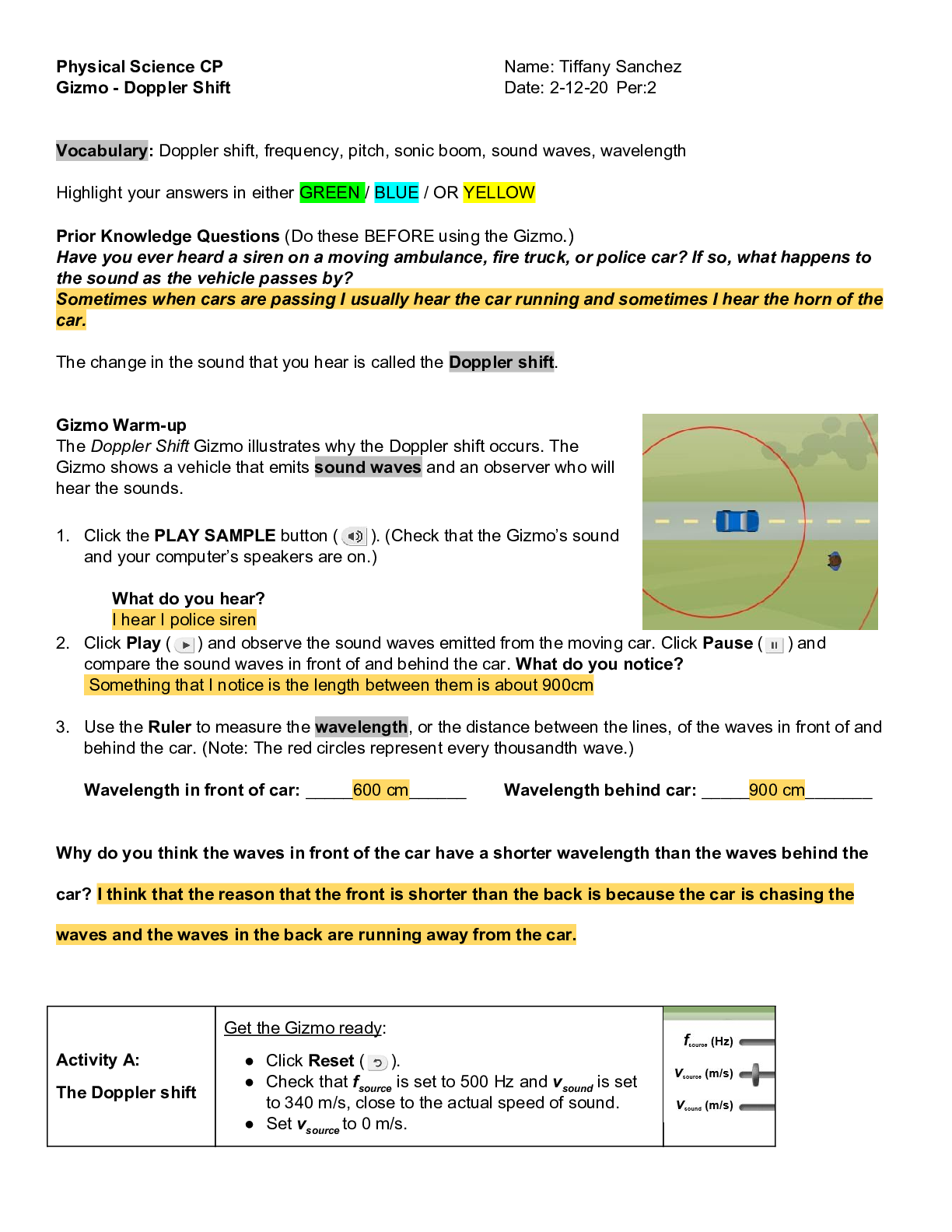Acids, Bases and Salts GIZMOS
Document Content and Description Below
Nature of Metal Oxides and Non-Metal Oxides You must have observed that in a laboratory, almost all acids are stored in a glass or plastic bottle. However, acids are never kept in metal containers. Do ... you know why? This is because acids are corrosive in nature. They can react with metals and destroy them. Do you know what happens when metals react with acids? When an acid reacts with metals, salt and hydrogen gas are produced. Thus, metals react with acids and replace the available hydrogen(s) to form salt. This can be represented as follows: For example, sulphuric acid (H2SO4) reacts with calcium (Ca) to produce hydrogen gas (H2). Calcium sulphate (metal salt) is also produced in the reaction. The chemical equation involved is as follows: DO YOU KNOW? When acid-containing food items such as pickles, curd, and citrus fruits are kept in metallic utensils, a reaction between the metal and the acid (present in the food item) takes place. Iron, aluminium, and copper are more prone to acid attack. Sometimes, these reactions result in the formation of toxic substances. The following activity can be performed to confirm that hydrogen gas is produced when metals react with acids. Now, let us see what happens when metals react with bases. [Show More]
Last updated: 3 years ago
Preview 1 out of 23 pages

Buy this document to get the full access instantly
Instant Download Access after purchase
Buy NowInstant download
We Accept:

Reviews( 0 )
$10.00
Can't find what you want? Try our AI powered Search
Document information
Connected school, study & course
About the document
Uploaded On
Aug 12, 2021
Number of pages
23
Written in
All
Additional information
This document has been written for:
Uploaded
Aug 12, 2021
Downloads
0
Views
97

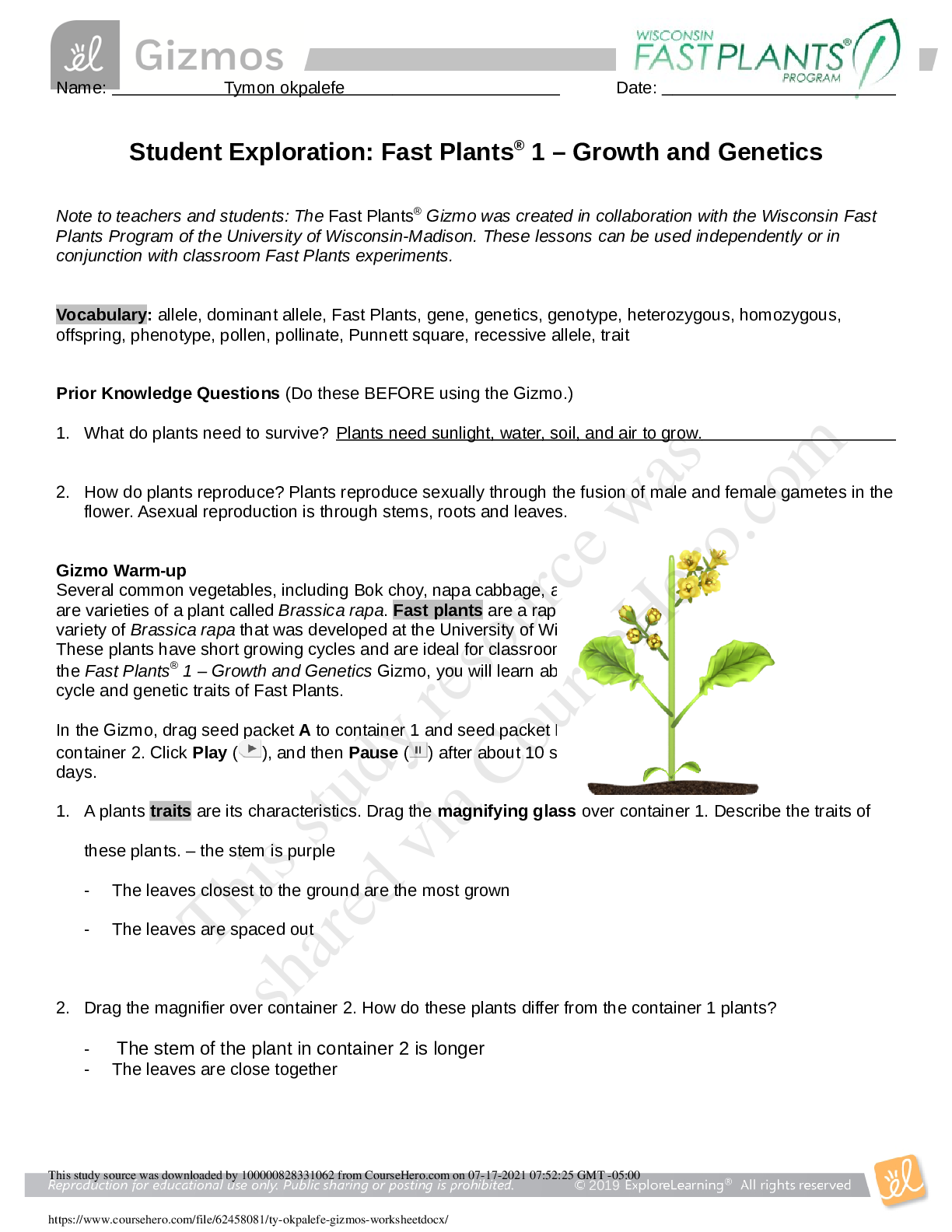
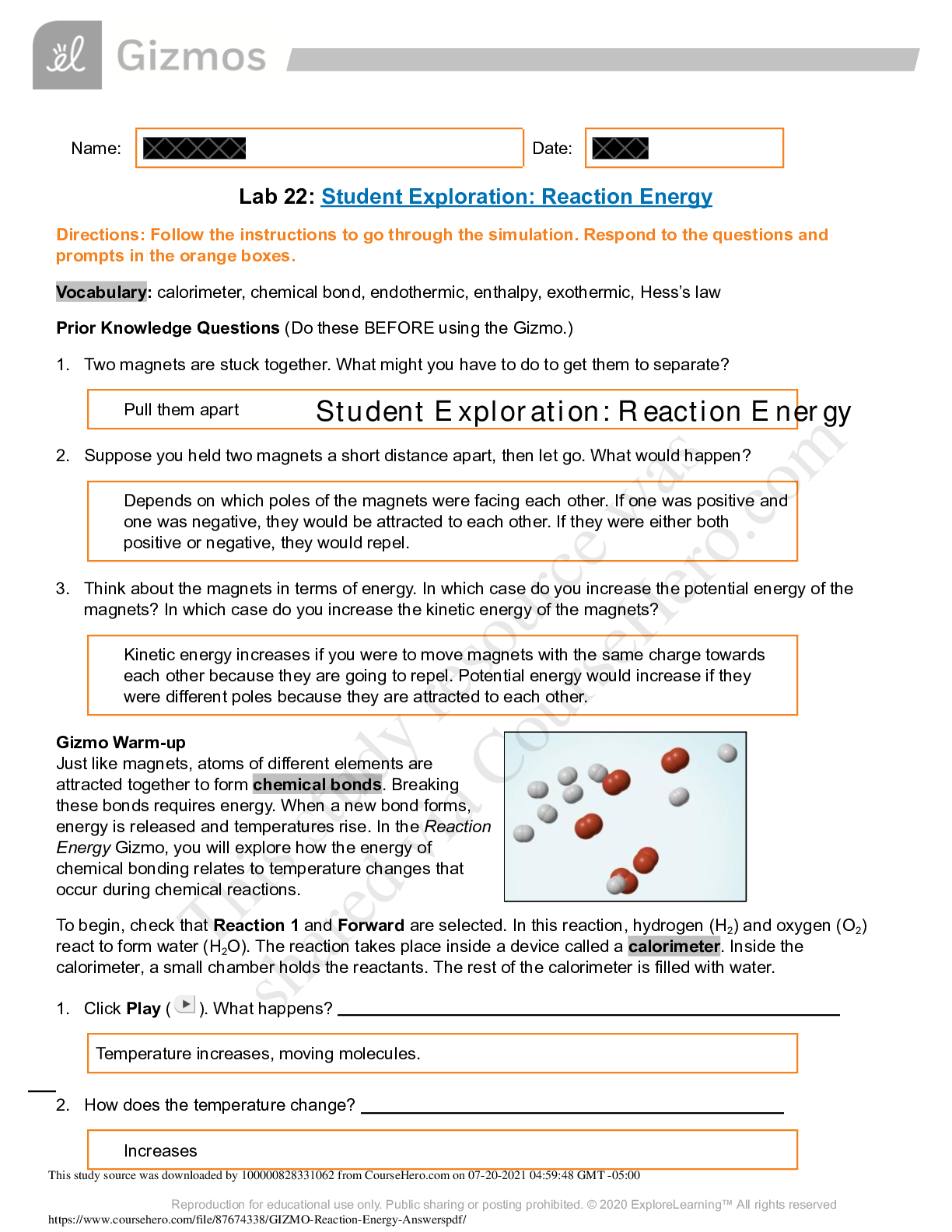



.png)







